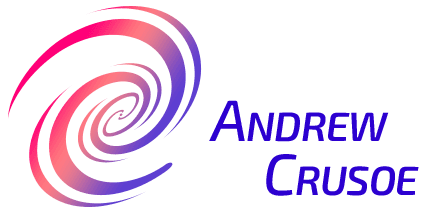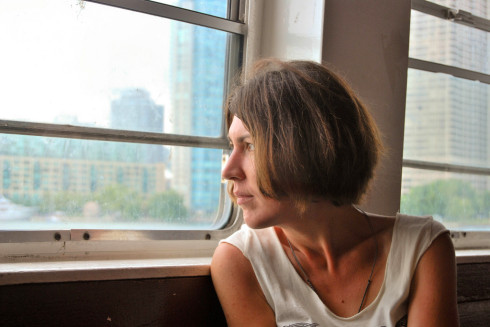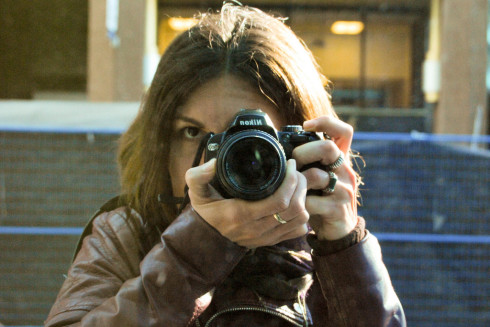Below is part two of a three part series in which I interviewed travel writer Tui Snider. See part one of this interview if you haven’t read it yet.
In this third and final segment, Tui and I discuss how to approach social networking with a healthy attitude, how to get a lot of Twitter followers without being an energy vampire, and Tui’s advice for those of you who are thinking of starting a blog yourself. Tui shows how leveraging technology can be immensely powerful, her website being just one example of that.
Tui Snider Interview
Part 3: Leverage your Blog & Twitter Intelligently
48. How important do you feel social media is to what you do, and how do you find balance with it?
Oh, yeah. Importance and Balance. I find it really important for me for socializing. At one of the classes I took at the DFW Writer’s Conference, the guy was talking about the importance of social media, and I realized that he saw it only as a selling tool for his book, whereas I saw it for many things. Bottom line is: I used it for fun, connecting with people, and making friends.
I was in Italy during the last US election cycle, and it was so great to be on Twitter then. I connected with a lot of other ex-pats. We would be up hours before the people in Washington. Sometimes I would break news to them. And we all stayed up to watch the debates. There were about 5 or 6 of us, and it was like 3:00 AM for us. But they did televise the debates in Italy, and it was fun to be live-tweeting with some other Americans. It gave me such a sense of connection where I would have otherwise felt really isolated, because I love to vote.
49. I gotta say I wish more people looked at Twitter the way you do, to be honest, because I think it would be a much warmer, more approachable place. I remember the early days around 2008. Everybody used it as almost a big chat room.
Yeah! It was slower-paced then.
50. It was much slower paced, and no one followed more than a few hundred people. There was more of a camaraderie. Everybody was kind of geeky and almost everyone had a website and things to share. And then at some point, around 2010, it went really, really mainstream; and it seemed like suddenly everybody was trying to push something in my face or sell something.
I started getting these auto-DMs from people and think, “Oh, they wrote me.” But it was all, do this and that, click on this link, and buy my book. And I’m like, “Geez, I don’t even know you yet. I just followed you, and I’m gonna get to know you.” It was off-putting.
51. Yeah! And I’m willing to cut people some slack because it is a new medium, but sometimes there’s just obnoxious behavior that won’t work in any medium which makes me nostalgic for the old days. (Like an old man.) But I wish more people used Twitter like you do because your personality and friendliness really comes across.
Oh, I’m glad to hear that!
52. It’s true. Now, on the other hand, there are certain people that you feel like you should be following because they are respected people and they follow you. But maybe you get to a point where you really don’t like anything this person is tweeting. Do you unfollow them or do you continue to follow them because it’s a mutual follow?
No, I unfollow people. If there’s kind of an ugly energy coming off of what they say—if it’s negative all the time. If they’re having a bad day I might try and perk them back up, but when their tweet just comes off as mean-spirited all the time, the jokes they’re telling just kind of make my stomach hurt, I’ll just unfollow them, ‘cuz I’m like, “Life’s too short. I don’t want to contribute to that.”
53. That’s a good place to draw the line, where your intuition is giving you a red flag.
Yeah, you’re like “Ouch.” If the pain that I feel from it is that the person is having a bad day. Once, this guy wrote something about women not liking the nice guys or whatever and I said, “Hey that’s not true, I think I married a pretty nice guy!” And we went back, and forth and I still follow him. So it was just one little thing, but if everything they say is negative, then I’m going to unfriend them.
54. That’s a good litmus test. Run it by your gut.
I treat it a lot like the coffeehouse where whoever comes up to the counter I kind of have to deal with them. But on the other hand I don’t have to put up with verbal abuse. There’s sort of a give and take. I always saw it as part of my job not just to serve coffee but to try and perk someone up mentally, too. That was always my challenge, and I would take certain customers on who were chronically grouchy and try and turn them around. I feel like, “This person, one day, I’m going to get her to smile!”
55. Are you a fixer, Tui? 😉
Maybe so! It would be my entertainment though. I’d be like, “I am going to make him smile one of these mornings.” You know, if he just comes through and treats me like a robot. If he doesn’t see me as a person. Sometimes it gives me challenges to see what I could learn about these people, where they were coming from, how they saw the world, how closed down some of them were.
56. It sounds like a very good growth experience, and I think that’s something that both of our sites have in common is that they both harp on these kinds of growth experiences.
Yeah, it’s a lot of energy. You’re dealing with energy. And I think that’s what happens on Twitter. It’s like a big conversation. You jump in and everyone is tossing in their energy.
57. That’s a really good way to think of it. It’s kind of an energy pool. And let the record state that as of this interview you have over 1,900 followers, which is great! Your follower count is really a testament that if you come to Twitter with a playful attitude, you can still affect a good number of people.
So, to start winding this down, before you started Mental Mosaic, did you consider yourself having entrepreneurial tendencies or was it something that grew out of when you were in Italy?
Well, I never saw myself as an entrepreneur.
58. Or was it just something where you saw yourself as a writer first, and then it started to be more of a business? I don’t think you sell anything. Do you sell anything on the site yet?
No, but I am going to put my blog on Kindle. I just found out I could do that because of #commenthour. Two people on there have put their blogs on Kindle, and my mother-in-law is not online at all. So we want to get her a Kindle for her birthday. She’s always asking about photos and travel. Seemed like a fun thing to do!
59. Yeah, they’re great devices. I have one. There are lot of people who are super nostalgic for books. I love books, too, but…
I love books too, but hey, I’ve moved enough. I know how heavy they are! And I’m thinking of doing some indie-publishing, too, so I’m really interested in that.
60. Do you mean self-publishing?
Yeah!
61. It’s funny you should bring that up because I’ve been doing a lot of research on that for the novel I’m finishing up right now.
I’m interested about your novel. Well, you know, the keynote speaker on the conference, James Rollins, who has had like 49 books published, been on the New York Times Bestseller list. I attended one of his classes and he said, “You know what, I just want to try self-publishing, just because it seems so great! It gives you so much more power.” He was so excited about it. So, you’re thinking about doing it?
62. I am going to self-publish, probably through Amazon’s CreateSpace.com service. I like self-publishing because it gives me complete creative control, which brings me to my next question. Do you look at MentalMosaic.com more as an outlet for your creativity or more as a business?
Yeah, I totally look at it as an outlet.
63. If you feel comfortable answering, may I ask if you make any money from it currently?
Not right now. I was making enough from ads to pay my hosting for a while. But I have gotten writing jobs from it before—editors writing to me for different reasons. I’ve gotten writing gigs through Twitter, as well. Someone tweets something, “Hey, I told an editor about you because they wanted me to write this and I can’t. Too busy.” So I’ve gotten things that way.
But I really haven’t until last week at DFW Con I really thinking about it, realizing that I really do want to self-publish my memoir. In that regard, I’m thinking that I want to look at my blog a little differently. I want to put more personality into it. I want to have it more of an outlet, because I would sometimes feel stymied. I would think, “If editors see me being too playful then they’re not going to like it.” Now I’m just like, “No, I’m really going to share a lot more about myself, in that regard.” And I’m going to share my journey into self-publishing, coming up.
64. I will definitely be interested in following that. I feel like we could have an entirely separate interview about self-publishing.
Yeah! Maybe I’ll be interviewing you on that.
65. Yeah, maybe! My goal is to have this novel published in the Kindle Store by the end of the year.
Oh, great! That’s an excellent goal. And I like how tangible it is, and measurable.
66. Thanks! I’m excited about it. And that also brings me to one of my last questions: out of everything you’ve ever published or created, what are you most proud of?
That’s a hard one. One thing I was proud of was a magazine article where I had to interview people in Italian and write it in English, and it was in a real magazine that paid well. Print pays so much better than online in my experience. So that was fun, because it was challenging. I was nervous to interview people, and I was also nervous to speak Italian. So thank goodness I had a good digital recorder.
And also it was fun doing the shopping chapter for the Time Out Guide about Naples. That was a lot of fun because I felt like I got to put in some personality, too. I got to tell about the cultural aspects of what it’s like to go shopping in Naples; because not only do they have a different rhythm there, but compliments are part of the culture.
67. Really?
Yeah, and I think for women, you shouldn’t take it wrong like, “This man is hitting on me.” That’s a big Italian thing. They give compliments. That’s part of their culture. It felt good to impart something like that.
68. That sounds like a wonderful project, and you make a good point in that people are not just interested in information anymore. The personality behind it has become just as important, in some cases more important, than the actual information being conveyed.
And maybe some insight, too. I felt like I was giving them something insightful.
69. An insight that perhaps only you could provide them.
Yeah, you had to be there for a while to get. So by getting their before they arrive and save them from potentially from being offended or just not knowing. That cultural side of things I like to share.
70. Exactly, and why does someone keep coming back to a given website? Because they enjoy a person’s style, they enjoy a person’s personality, and the way that they tell the story. I think this is why people tend to see movies based on what actors are in them. Because they know the actor is going to provide a certain personality to that role. And I think people have underestimated the power of personality when it comes to creativity.
I agree! It’s like Christopher Walken or something. Or Jack Nicholson.
71. So, do you have any advice for people who want to start their own travel blog or grow their own travel website if they’re starting out now?
Yeah!
72. Tui, be honest. Are they doomed? Is it too late? Is blogging dead?
Oh, I’m never one of these people that thinks any form is dead. I’m never one of those people who thinks every song has been written. My big advice is to go back to free-writing. Maybe before you even put a blog up, pretend you have a blog. Do a fake blog you don’t go public with and privately write some things every day on your computer for a while and see what rhythm you get into. Don’t put yourself out there with no clue. Do a lot of pre-writing. Not years of it, but do a little of it beforehand to help hone your topic. And then look at the blogs that you like and think about what they have in common before you jump in.
Some people I see, they start a blog. They do like write three articles, and then just burn out. Maybe because it wasn’t a good topic for them, and they only really had three articles in them. But they’ve got this great domain name. Maybe if they had a set schedule of writing before they would have discovered “Oh, what I really want to say is…” ‘Cuz that happens to me a lot when I write, anyway. I have to burn through a certain amount of stuff, and suddenly I hit the marrow. “Ah, this is what I really want to say!” And I throw out the whole big beginning part!
73. I know exactly what you mean! Is there anything you’d like to plug before we wrap this up?
Just come by my blog, say Hi. I don’t really have anything to plug. Come to #storydam, say “Hi” on Twitter. Say “Hi” to me anywhere, and I’ll say “Hi” back!
74. And let’s not forget about your book about living on an island with a population of seven.
Yes! I’m going to be self-publishing that this year. I don’t have a title yet exactly.
75. Well, I definitely look forward to that. And that brings us to the last question: how do you see travel writing and travel sites evolving into the future as we go on? Will people move on to reading everything on the Kindle? Will everything become mobile and people stop reading websites on their computers? Feel free to speculate.
I’m not sure. I think there’s always the need—and this is becoming more and more apparent, like you said—for people who can tell a good story. There are two different things. The straight information, and there’s a lot of apps for that, and those are great. And I think the stronger those get, like Yelp, the more streamlined those get, the less of a need there is for that in blogs, but there’s always a need for that human story. So I think that’s what’s always going to be there, and that’s going to be more apparent. The human behind it, the person’s experience being shared, the memoir behind the travel is going to become more important.
76. I completely agree. Wow, thank you much, Tui, for agreeing to do an interview today! I had so much fun. 🙂
Oh, I’m grinnin’ ear to ear. Yeah, I had a blast! That was a lot fun! I doodled and I took notes, so yeah! I think I have a lot to blog about from here. Was a blast! 🙂
77. Excellent! Thank you so much, Tui!
And that’s the interview. If you’re interested in Tui’s work, feel free to checkout her blog at MentalMosaic.com.
If you’re a writer who is interested in getting more attention to your work, checkout @storydam on Twitter, which is a weekly Twitter chat for writers each Thursday evening from 8-9PM US Central Time. And if you’re not sure how to participate in a Twitter chat, see Tui’s post: Top Tips for Chatting on Twitter
While you’re at it, checkout TweetGrid.com which Tui recommends for conversation-heavy twitter use. And for more info about the DFW Writer’s Conference, checkout DFWWritersConference.org
More interviews to come!


